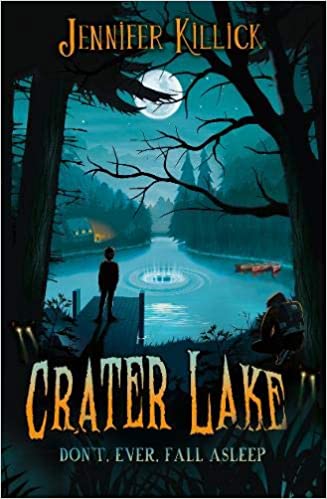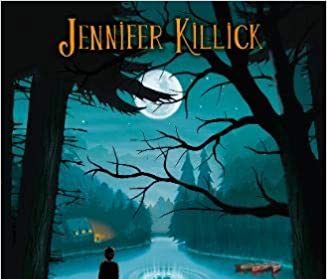Take a walk through a terrifying and fun-filled story as Georgia Winstone-Cooper reviews the latest hit novel from Firefly Press, Crater Lake by Jennifer Killick.

Danger and adventure are what most children long for on a school trip; spending a whole weekend away with all your friends and no parents seems like the perfect opportunity for freedom and chaotic escapades, but few really experience over the course of organised and educational fun. Jennifer Killick’s latest novel Crater Lake follows a group of students who expect their school trip to an activity centre based around what is essentially a hole in the ground to be a boring waste of time but encounter a whole lot more. The genre “children’s horror novel” sounds perhaps paradoxical – adults are more prone to protect children from horror than they are to expose them to it – but Killick never underestimates what her young readers can handle. The narrative and descriptions at times edge towards being gory and difficult to read, but never go beyond what is appropriate and is exactly the sort of weird and gross moments that pre-teens will enjoy.
The narrative is original and well-crafted and even includes several moments which are educational, but always in an organic style and when it is relevant to the plot. The characters are complex, the young ones at least, and the children gradually come to realise that the classmates they thought they knew so much about are far more interesting and have much more going on in their lives than they originally thought. Crater Lake encourages bravery but also open honesty and friendship, the children learn to bond through their shared experience on the school trip, but also through truly getting to know each other. The need for these positive attributes is never expressed in a forced manner and Killick makes no attempt to preach any moral lesson. The novel remains exceedingly fun and gripping throughout, but the experiences of the children will show to young readers the benefits of considering life from another person’s perspective.
Whilst the majority of young characters are complex, there is a disappointing stereotype present throughout in the character of Chets. Chets proves himself at several points through his ability to hack a computer system and is redeemed towards the end through his newfound self-confidence. However, throughout the vast majority of the novel, he is the typical stereotype of the overweight best friend. Chets is obsessed with food, dim-witted, and scared of almost everything, even his technological prowess and impressive abilities as an eleven-year-old computer hacker only add further to the stereotype. The protagonist Lance defends Chets against any bullying if which he is the victim due to his weight and shows disgust towards such behaviour in his internal monologue, yet this is contrasted with other instances during which Chets’ defining characteristics are shown in relation to food. For example, later in the novel during a moment when all the young characters react to something, Chets is described as having a sweet fall from his mouth as he too opens his mouth in shock. The moment seems unnecessary and is a disappointing inclusion in a novel that otherwise attempts to steer away from stereotype and assumption, and includes references to foster care, Crohn’s disease, and even doomsday prepping.
Killick presents the insecurities and perspectives of children well, exploring the fears of leaving primary school and the desire to become a grown-up before they are fully ready. Killick allows for a fantastical world in which children can take daring feats and save the day, without the need for any boring adults who want to do things sensibly. Although the jokes, attitudes, and rapport amongst the young pupils are nuanced and realistic, the language at times does feel forced and awkward. The use of slang is often outdated or used in the wrong context, which creates jarring moments in an otherwise well-crafted narrative.
A story about mass infection through spores contained in the saliva is perhaps not the story most people would reach for at the moment, however following a group of young people who save the day through friendship, working together, and helping each other is exactly the sort of escapism needed. Crater Lake is an enjoyable escapist read for any child sick of being told they cannot do something and wish for a few moments away from grownups who think they know best.
Crater Lake by Jennifer Killick is available now from Firefly Press.
Georgia Winstone-Cooper is a regular contributor to Wales Arts Review.



 Enjoyed this article? Support our writers directly by buying them a coffee and clicking this link.
Enjoyed this article? Support our writers directly by buying them a coffee and clicking this link.







